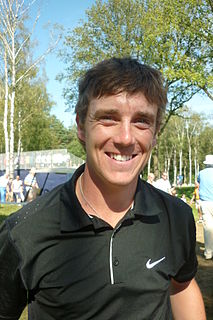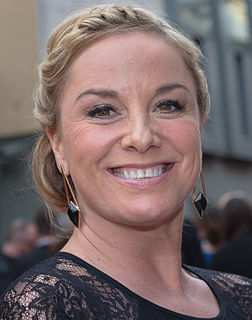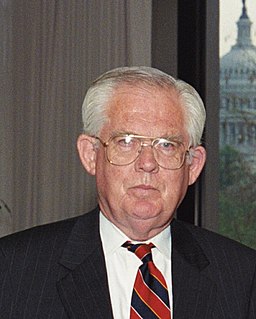A Quote by Michel de Montaigne
We every day and every hour say things of another that we might more properly say of ourselves, could we but apply our observations to our own concerns.
Related Quotes
Every round I have three little targets. Maybe it is just 'talk to myself properly' or 'stand up straight on the greens.' One day I might say, 'Don't talk to anyone.' On another I'll be a lot chattier. Or I might say, 'smile all the way round.' Little things. But little things turn into bigger things.
We say that the hour of death cannot be forecast, but when we say this we imagine that hour as placed in an obscure and distant future. It never occurs to us that it has any connection with the day already begun or that death could arrive this same afternoon, this afternoon which is so certain and which has every hour filled in advance.
All of us are prone to excuse our own mediocre performance. We blame our misfortunes, our disfigurements, our so-called handicaps. Victims of our own rationalization, we say silently to ourselves, 'I'm just too weak,' or 'I'm not cut out for better things.' Others soar beyond our meager accomplishments. Envy and discouragement take their toll. .
Our government has become too responsive to trivial or ephemeral concerns, often at the expense of more important concerns or an erosion of our liberty, and it has made policy priorities more dependent on where TV journalists happen to point their cameras. . . . As a nation we have lost our sense of tragedy, a recognition that bad things happen to good people. A nation that expects the government to prevent churches from burning, to control the price of bread or gasoline, to secure every job, and to find some villain for every dramatic accident, risks an even larger loss of life and liberty.
Human enhancement is now being driven by military imperatives, at least in the US, because civilian society is more conservative in its approach. It’s a missed opportunity for a society-wide push to understand and reduce our need to power the brain down for hours every day. Every hour we sleep is an hour we are not working, finding mates, or teaching our children; if sleep does not have a vital adaptive function to pay for its staggering opportunity cost, it could be ‘the greatest mistake the evolutionary process ever made’.









































